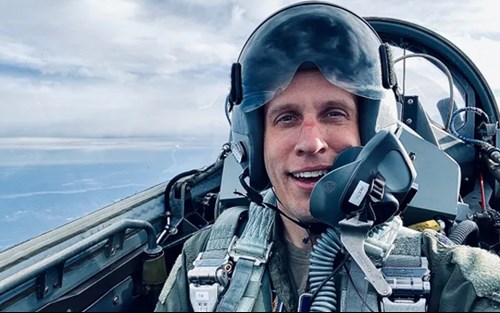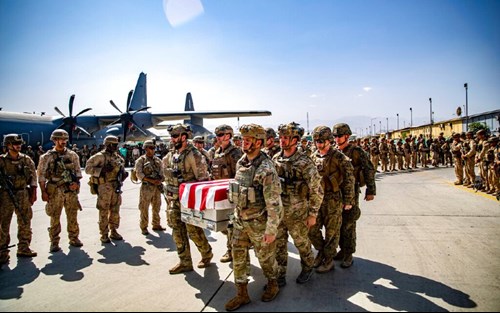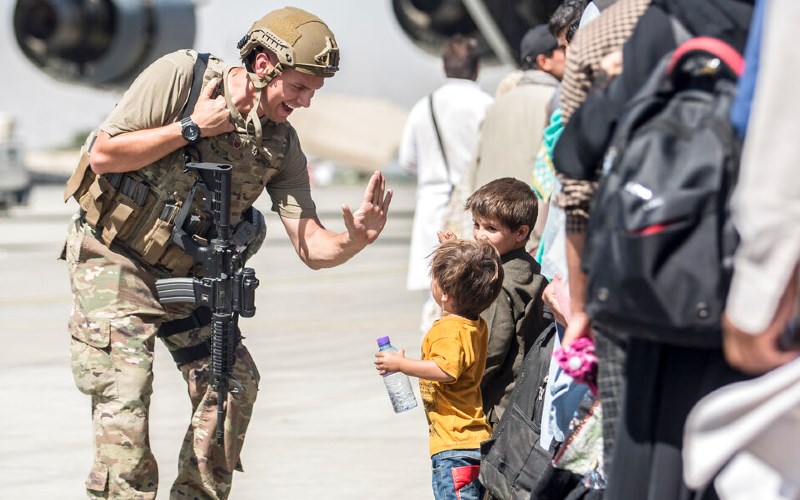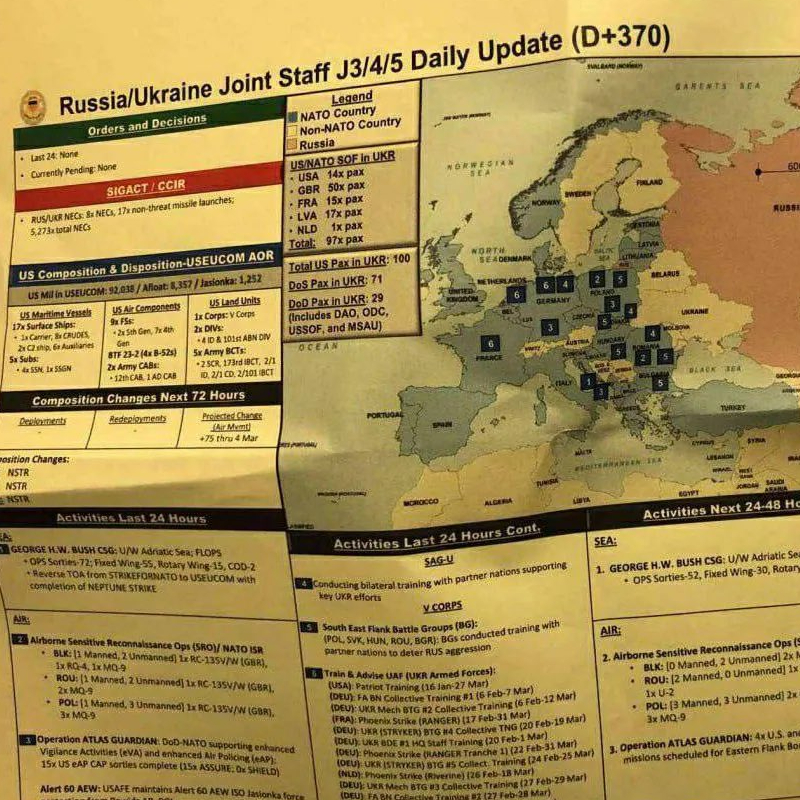Reversing a 2021 statement earlier this month, John Kirby, National Security Council coordinator for strategic communications, suggested he longer "buy[s] the whole argument of chaos" regarding the sudden U.S. withdrawal from Afghanistan.
In an obvious effort to prevent any blowback to the Biden administration, Kirby said that while the situation on the ground was tough, the president put his faith in military commanders and others on the ground.
 American Family News spoke to Lt. Col. (ret.) Ryan Sweazey (pictured at right), a former F-16 fighter pilot, who later documented our failed military as an inspector general for the Air Force. He says the recent White House briefing confirms “our president, our commander in chief, is deflecting to his leaders on the ground.”
American Family News spoke to Lt. Col. (ret.) Ryan Sweazey (pictured at right), a former F-16 fighter pilot, who later documented our failed military as an inspector general for the Air Force. He says the recent White House briefing confirms “our president, our commander in chief, is deflecting to his leaders on the ground.”
To the contrary, the founder of Walk the Talk Foundation, which advocates for and protects whistleblowers, argues that most people still point their finger to President Biden and his administration. Placing the blame solely on Biden for a failed evacuation from Afghanistan, he argues, may “play more to political theater and mud flinging than anything." That's because the operational-level breakdowns witnessed during the haphazard withdrawal existed throughout the war.
 Many expressed grave concern about the direction of the war and its end result for the entire 20 years of the conflict.
Many expressed grave concern about the direction of the war and its end result for the entire 20 years of the conflict.
“It didn't seem like it really came on Congress's radar," Sweazey complains, "at any point during the 19 years previous.” So he argues Republicans in Congress were quick to "swoop in" after the failed withdrawal, which he calls political "mudslinging" and not an honest demand for accountability.
“There is validity that the commander-in-chief has ultimate responsibility and authority, but where was the outcry the past 19 years of the war?” Sweazey asks. “There were too many operational breakdowns to count and the terrible loss of lives for arguably nothing.”
 Citing figures from Harvard's Kennedy School, The Associated Press reported 2,448 U.S. service members were killed in Afghanistan. The number of U.S. contractors killed was even higher: 3,846.
Citing figures from Harvard's Kennedy School, The Associated Press reported 2,448 U.S. service members were killed in Afghanistan. The number of U.S. contractors killed was even higher: 3,846.
“Where was the Republican party’s want for accountability then?” he continues. “It didn’t exist.”
In the war's final hours, 13 U.S. service members and 150 civilians were killed by suicide bombers outside the Kabul airport. In a retaliatory strike, the Pentagon dropped a Hellfire missile on a suspected ISIS terrorist who was reportedly loading explosives into a vehicle.
Weeks later, an investigation by The New York Times revealed the U.S. drone strike killed an innocent aid worker, and his family, while he was loading water in the trunk of his car (pictured below).
 What was called a "righteous strike" by the U.S. military was called a "tragic mistake" three weeks later when the innocent target was revealed.
What was called a "righteous strike" by the U.S. military was called a "tragic mistake" three weeks later when the innocent target was revealed.
Two years later, no one has been punished for that incident.
To get to the root of the problem of the U.S. withdrawal, Sweazey asserts, someone needs to ask why military leaders were put in a position with a swift timeline and little chance of a successful operation due to inevitable errors made in the midst of chaos and violence.
Those errors are part of larger, systemic problem, Sweazey contends, pointing to “the failings of the war itself.”
When he retired in 2022, Sweazey founded the Walk the Talk Foundation to demand reforms to the U.S. military's Inspector General system and to protect whistleblowers in uniform.







